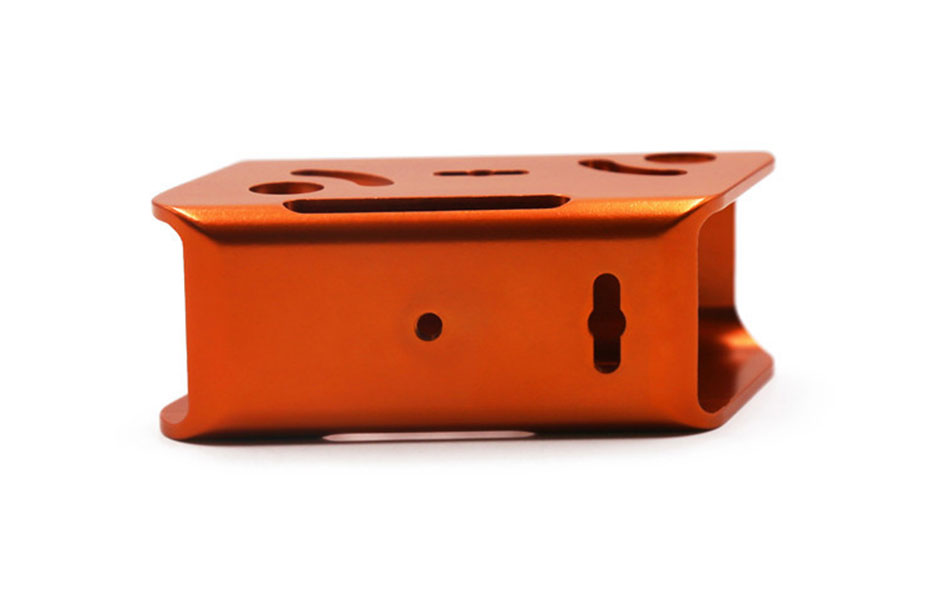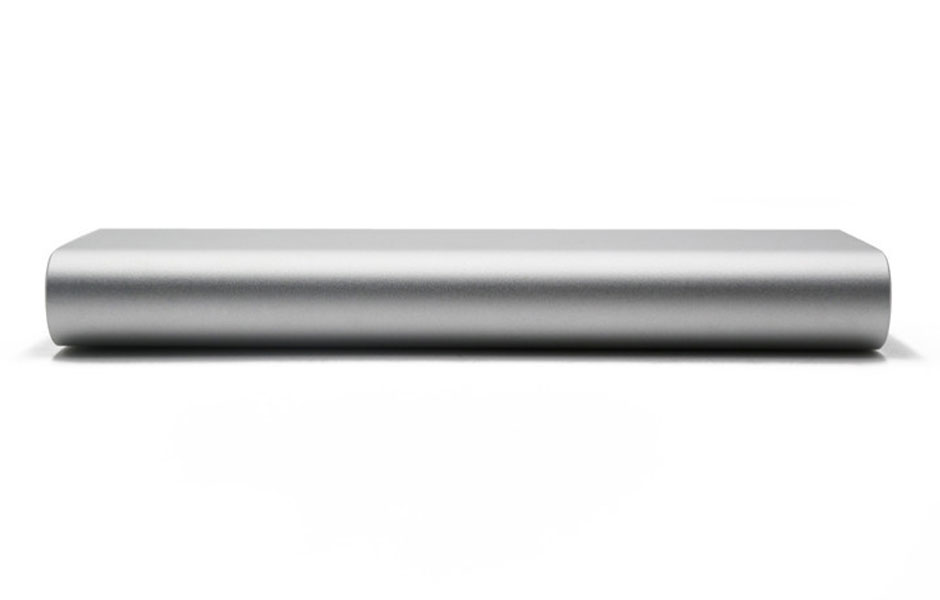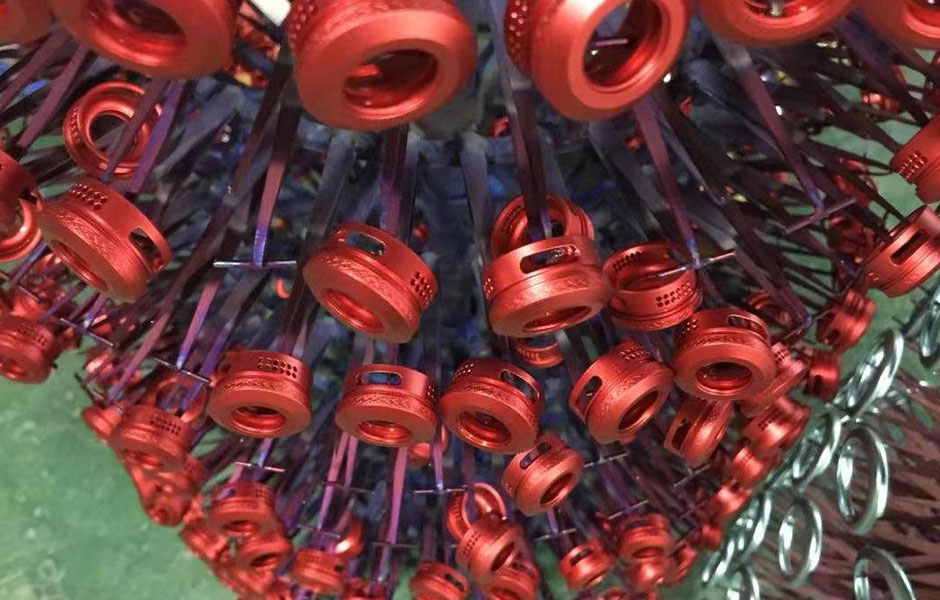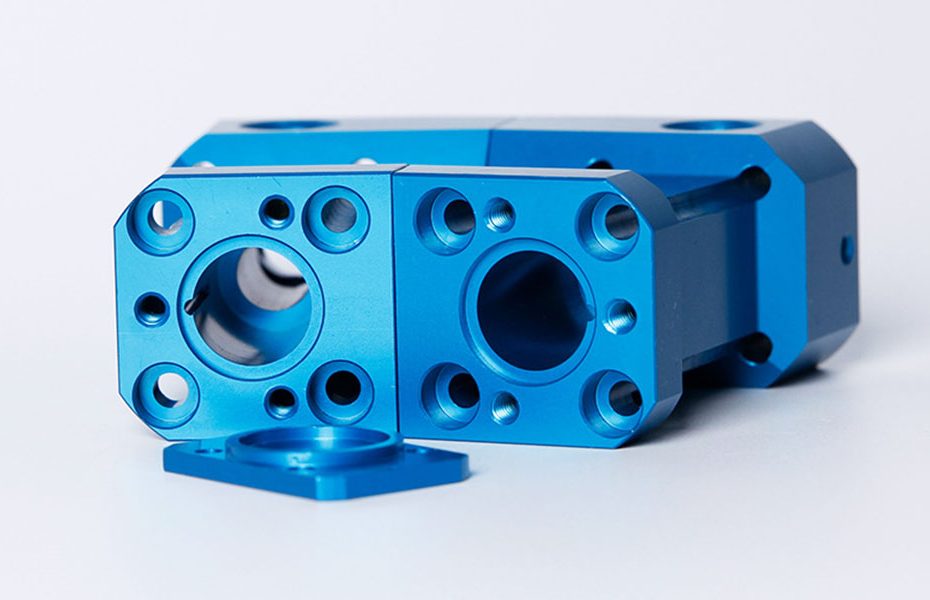Aluminum alloy has become the second largest type of metal material next to steel due to its excellent physical and chemical properties such as low density, high strength excellent ductility, good electrical conductivity, strong corrosion resistance, and easy forming. Especially, the use of CNC machining technology to manufacture aluminum prototypes has received widespread attention. There are many surface treatments for custom aluminum parts, such as anodizing, micro-arc oxidation, electroplating, painting (Powder coating or painting), etc., and the most widely used process is anodizing. Today let us discuss the knowledge of anodizing and the factors affecting the cost of anodizing aluminum parts.
What is anodizing and its effects

The anodizing process is to use metal or alloy parts as an anode and uses the method of electrolysis to form an oxide film on the surface. Metal oxide films change the surface state and properties, such as surface coloration, improve corrosion resistance, enhance wear resistance and hardness, and protect metal surfaces.
The anodizing of aluminum and aluminum alloys placed the aluminum and aluminum alloys as an anode in the corresponding electrolyte (such as sulfuric acid, chromic acid, oxalic acid, etc.), and electrolysis is carried out under specific conditions, and the action of an applied current. A thin layer of aluminum oxide is formed on the oxidized surface of the aluminum or aluminum alloys of the anode, and its thickness is 50-30 microns, and the hard anodized film can reach around 25-150 microns. The aluminum and aluminum alloys anodizing process, the hardness and wear resistance improved, and there are a large number of micropores in the thin oxide film, which can absorb various lubricants and are suitable for the manufacturing of engine cylinders or other wear-resistant parts; Micropores in the thin oxide film with strong adsorption capacity can be colored into a variety of beautiful and gorgeous colors.
Non-ferrous metals or their alloys (such as aluminum, magnesium, and its alloys, etc.) can be anodized. This method is widely used in mechanical parts, aircraft and auto parts, precision instruments and radio equipment, daily necessities, and architectural decoration.
Types of Anodizing Process

There are three types of processes in anodizing aluminum parts. Each one has a different degree of coating, and they depend on the electrodes, electrolytes, and electrical energy used.
- Type 1
Type 1 anodizing of aluminum is also called the “light” type. The process involves putting the aluminum part in a tank containing chromic acid, with the aluminum part acting as the anode.
Current is made to pass through the chromic acid, and the positive aluminum particles leave the surface. The particles leaving the surface leave microscopic grooves, which, when oxidized, form the oxide layer. Type 1 anodized aluminum parts are more heat and corrosion-resistant when compared with unoxidized aluminum.
- Type 2
Parts made using the Type 2 process are similar to Type 1’s. The only difference is in the acid used. Sulfuric acid replaces chromic acid, and due to its high potency, it results in a deeper groove and thicker oxide later. Type 2 aluminum parts have better paint retention because they are deep and easily filled.
- Type 3
It involves the use of higher voltage and a strong acid (sulfuric acid). It is also known as hard anodizing and is ideal for making heavy-wear parts.
Factors Affecting the Anodizing Aluminum Part Cost

Regarding the cost of anodized aluminum parts, although it depends on different requirements, there are three key factors that affect the cost of anodized aluminum parts. The cost of anodized aluminum mainly depends on the thickness of the coating, the size and shape of the parts, and the additional services required.
Coating Thickness
If the type of coating does not require a specific thickness, it is considered a “basic” coating and has the lowest price.
Controlling the precise coating thickness will affect the cost. If the coating thickness specification includes upper and lower limits, the narrower the range, the higher the cost. For example, the price of +/-.001″ is cheaper than the stricter range of +/-.0001″. The maximum coating thickness may cost more because they require longer production times.
Rack
The rack is critical to quality. Aluminum or commercially pure titanium racks will be used to make electrical contacts. If the job does not specify shelf requirements, the manufacturer will use the most cost-effective method to obtain the highest yield. Special shelf requirements may limit the number of parts processed at one time, and the cost of each part may rise.
The number of parts anodized at one time is affected by power supply limitations. Anodizing is performed at 15 or 30 amperes per square foot (ASF). Therefore, the maximum surface area can be processed in each run.
Additional Services
Customers usually need other processes to increase the anodizing process. These services will increase labor and time when parts require simple or complex covering or punching. These services add value, but also increase the total cost of anodized aluminum.
Conclusion
The anodized aluminum strengthens its performance in corrosion resistance and provides better adhesion for paint primers and glues than bare metal does. Anodizing film can also be used for aesthetic purposes, either with thick porous coatings that can absorb dyes or with thin transparent coatings that add interference effects to light reflection. And regarding concerns of anodizing aluminum cost, customers and manufacturers need to focus on the needed thickness, numbers of racking, and extra need so as to make a reasonable production decision.
CNC Machining Service
DFM CNC Shop is a CNC manufacturing and sheet metal fabrication company, including CNC machining services, CNC milling services, CNC turning services, laser cutting services, and stamping services.
DFM CNC Shop offers professional CNC machining and rapid prototyping service for making a wide array of product parts. Our excellent quality control systems ensure that all our deliveries are speedy and standard for every manufacturing size in both low-volume and high-volume productions. Feel free to reach out for a free quote on your project.
